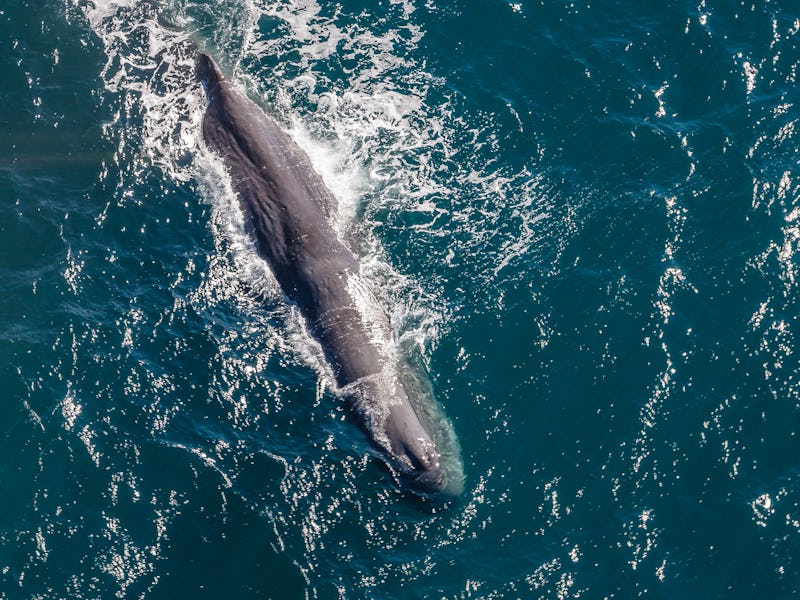Huge Sperm Whale Reduced to Empty Carcass After Ingesting 64 Lbs of Plastic
The ocean's trash problem is getting out of hand.

Indigestion can be crippling, leaving one toilet-bound for days. In the ocean, however, it can send you to your grave, especially if what you’ve been ingesting is plastic trash. That’s the tragic fate that befell a majestic sperm whale whose corpse washed up on the shores of southern Spain at the end of February. On Friday, environmentalists reported that its stomach contained 64 pounds of plastic waste.
The animal died because of plastic-induced gastric shock — a sudden failure of the circulatory system due to stomach injury — Spanish authorities said in an interview with the Telegraph on Friday. After the young male washed up on a beach in Murcia, experts with the El Valle Wildlife Rescue Centre performed an autopsy that uncovered ropes, nets, plastic bags, raffia nets, and a plastic jerry can inside its stomach and intestines. That this was not an isolated event has experts extremely concerned: This whale was one of a handful of individuals that have died from plastic ingestion in recent years, prompting environmentalists in Murcia to take steps against plastic trash being dumped into the ocean.
This particular whale ultimately died from peritonitis, an inflammation of the tissues lining the inner abdominal wall that, at least in humans, is usually caused by infection with bacteria or fungi. Those infections, in turn, sometimes take root because of injury to the abdominal wall — say, from ingesting giant, heavy pieces of plastic. If those infections get out of hand, the bacteria can spread to the blood through sepsis, which in turn can cause full-body shock and death. One 2013 study on whale death caused by plastic noted that death was “generally due to gastric rupture following impaction with debris, which added to a previous problem of starvation.”
Another sperm whale that washed up dead in southern Spain with 37 pounds of plastic (greenhouse panels, a clothes hanger, an ice cream tub) in its stomach in 2013 is thought to have died because its stomach got blocked. rendering it unable to eat. Likewise, one that washed up near Granada was nearly emaciated; “It was as if it had a rock inside its intestine, nothing could get through. There was so much plastic that it finally exploded,” said marine biologist Renaud de Stephanis, who works for the Spanish National Research Council, at the time.
Unfortunately, as the Great Pacific Garbage Patch has recently been shown to have grown to twice the size of Texas, the world’s plastic trash problem doesn’t seem to be getting better. That said, efforts to curb it are underway, at least in theory: in December 2017, 193 countries signed a U.N. resolution to start monitoring the amount of plastic they dumped into the ocean.
Marine life is hard enough as it is without humans inflicting severe indigestion on animals in the sea. Unlike us, they can’t pop a pack of Tums and call it a day; they’re forced to ride out plastic poisoning until its bitter end.